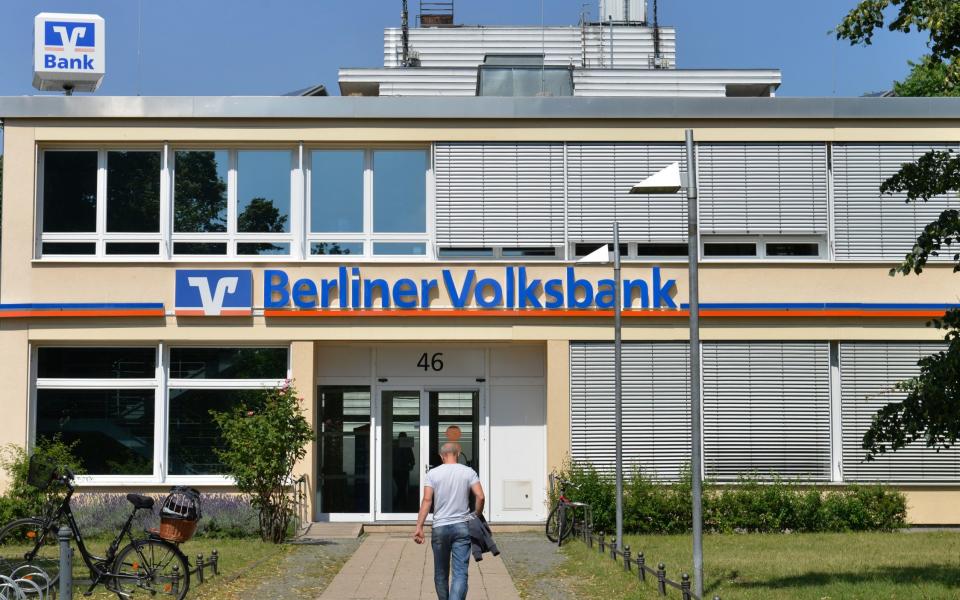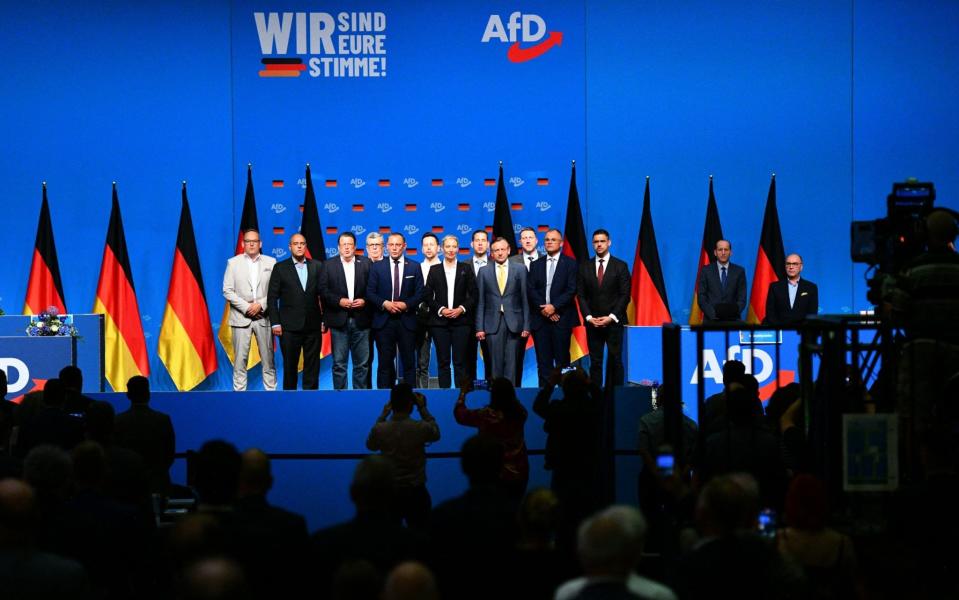Right-wing AfD debanked by angry German grandmothers

Germany’s AfD party is already reeling from a litany of scandals over Chinese spies, Nazi slogans and alleged Russian bribes.
But their true nemesis might be the humble German grandmother, after a band of silver-haired activists won a campaign to strip the far-Right party of a bank account it uses for online donations.
Omas Gegen Rechts, or Grandmothers Against the Right, launched a petition to effectively debank the Alternative for Germany (AfD) as it warned the party poses a threat to Germany’s democratic order.
The campaign group’s Berlin faction targeted Berliner Volksbank, a major regional banking chain that ran the AfD’s donations account. Senior grandmother Bettina Kern later held a meeting with a bank board member, Carsten Jung, after handing in their petition.
The AfD this week removed the option to donate to the Berliner Volksbank account from its official website, prompting Omas Gegen Rechts to claim victory in their campaign.
“There is great news: Berliner Volksbank is apparently ending its business relations with the AfD, thereby responding to our innn.it petition, which now has more than 33,500 signatures,” the group announced.

Ms Kern, a 77-year-old grandmother, said they started the petition due to concerns that growing support for the AfD hinted at a possible return to Germany’s dark history.
“In Germany, grandmothers have a direct relationship with the Nazi past. Even if we were born after the war we know what a terrible period it was,” she told The Telegraph.
“We are of the opinion that it must never happen again and I personally believe that the AfD has now come to such extreme opinions, that the government should ask our constitutional court to consider whether it should be forbidden.”
A spokesman for Berliner Volksbank declined to discuss the account in question. They said: “For reasons of banking secrecy and data protection, our company does not provide any information about presumed or existent accounts.”
The AfD’s head office was approached for comment but had not responded as of Friday afternoon.
The alliance of grandmothers launched their petition in response to social media posts by Berliner Volksbank about the importance of human rights, peaceful co-existence and a free democratic order.
They argued that these values were incompatible with the bank hosting a donations account for the AfD, branding the party a “Right-wing extremist” and “racist” organisation.

“We demand: If you are serious about #NeverAgainIsNow, dear Berliner Volksbank, then there is only one option now: close the AfD’s account!,” the petition said, referring to German society’s solemn refrain over the Holocaust and Nazi regime.
The AfD has been engulfed in a string of scandals in recent months, such as a claim by its former top candidate in the European elections, Maximilian Krah, that not all SS soldiers were necessarily criminals.
One of its most prominent figures, Björn Höcke, has been fined for using the Nazi slogan Alles für Deutschland (All for Geermany), while an aide to Mr Krah was arrested on suspicion of spying for China in April.
Mr Krah himself is under investigation for receiving suspicious payments from China and Russia in relation to his work as an MEP. He denies any wrongdoing but has been ejected from the AfD’s Brussels parliament delegation amid the furore.
Earlier this year, the AfD was also revealed to have sent staff to a secretive meeting with Right-wing extremists and neo-Nazis which discussed the mass deportation of foreigners in Germany, even those holding German passports.
At the same time however, the party has steadily risen in the polls and roundly defeated Olaf Scholz’s ruling coalition centre-Left SPD party in last month’s European elections.
It is particularly popular in the former communist east of the country, but a robust stance on migration, disdain for political correctness and deep Euroscepticism are also bringing in a growing number of supporters.

 Yahoo News
Yahoo News 
